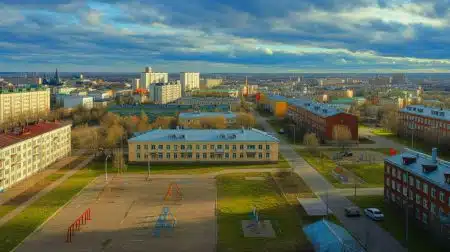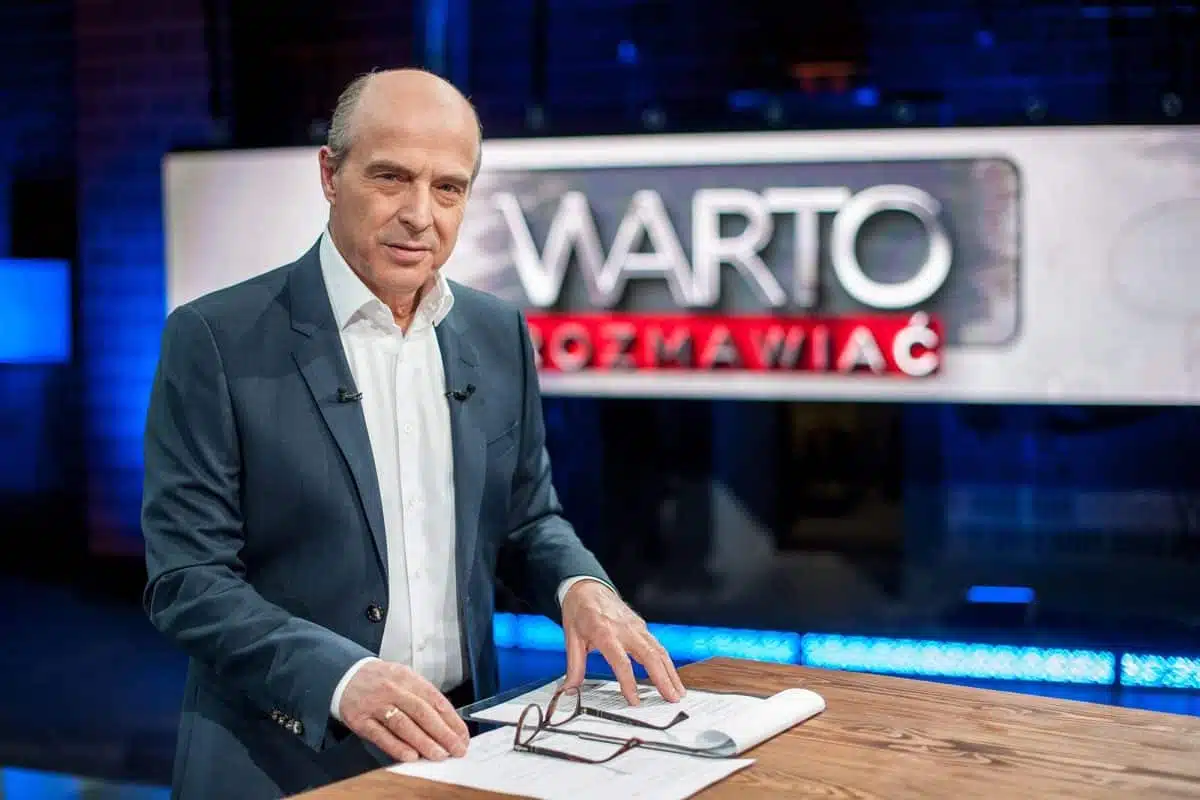Is it still permissible in Poland to criticize the government’s policy against the Covid-19 pandemic? One may have doubts, after public television suspended conservative journalist Jan Pospieszalski’s program Warto Rozmawiać (“It’s worth talking”) following the discussions held on April 12.
The speakers, and in particular two doctors who signed an open letter to the government and the media in the autumn calling for a change of policy against Covid, were extremely critical of the health restrictions, the obligation to wear masks, particularly outdoors, or even the mass vaccination of the entire adult population with vaccines that have not yet been sufficiently tested, even though, for the vast majority of people, the Chinese coronavirus SARS-CoV-2 represents no danger.
The two invited doctors also spoke about the procedures initiated against them by the Chamber of Physicians and Dentists because of their endorsement of this open letter, which could have given rise, according to the regulatory authority of the medical profession, to the propagation of information not in conformity with the state of scientific knowledge. Without necessarily seeking to take a position in the medical-scientific debate – supposing such a debate can take place – the critical discussion organized by Pospieszalski on public television had the advantage of allowing divergent opinions to be heard. Indeed, if there is one topic on which almost all seem to agree in the Polish political and media mainstream, it is the health policy against Covid-19 pursued by the Morawiecki government, on the recommendations of a Medical Council whose very composition was criticized in the program Warto Rozmawiać.
It was not the first time that the government’s anti-Covid policy had been criticized during Pospieszalski’s broadcasts. But this time it was too much for one PiS MP, Joanna Lichocka, a former journalist at Gazeta Polska (a newspaper in which PiS is never criticized) and currently a member of the National Media Council, the body responsible for appointing and dismissing the heads of the public media. “How is it possible that [public television] TVP broadcasts a program that attacks the fight against the epidemic, criticizes government policy in this area, questions the wearing of masks, etc.?”, Lichocka wrote on Twitter after having watched the program. For her, “Jan Pospieszalski is surely against the lockdown because he can’t earn money with his concerts [as he is also a musician], but, in the middle of a pandemic and in the public media, to question the need to wear a mask, to speak out against restrictions, etc., is still a scandal.” The National Media Council member therefore promised to intervene with TVP’s chairman Jacek Kurski.
Perhaps due to the journalist’s overly critical stance towards the spring restrictions, since June 2020, the live transmission of his show had already shifted from the 24-hour news channel TVP Info to the less-watched TVP3 regional channels, with a late-night broadcast on the first channel TVP1. But just before the recording of the April 19 show, Pospieszalski was informed that this time the transmission would not go live. The discussion was to be about remote schooling, which has been in effect in Poland uninterruptedly since October, and its negative consequences for children. Minister of Education Przemysław Czarnek himself had responded to journalist Jan Pospieszalski’s invitation, but as he tells anyone who asks, it is Health Minister Adam Niedzielski who makes the decisions. Since joining the government in October, the education minister, who appeared to be a representative of the ideological right within PiS, has turned out to be a mere executor of decisions taken by others.
As of today, the program recorded on April 19 has still not been broadcast and Warto Rozmawiać is suspended until further notice, although Jan Pospieszalski said on the show’s Facebook profile on April 30 that, thanks to pressure from viewers, he had been informed that he should be back on the air soon, perhaps even in May, but that remains to be seen.
To justify its decision of April 19, TVP had a statement issued by its “ethics committee” that the April 12 Warto Rozmawiać program had not respected journalistic ethics, because all the speakers were on the same side. That is certainly true, but it happens sometimes on this show, as on others, when the guest on the other side chooses not to come. In this case, the spokesman for the Chamber of Physicians and Dentists preferred to decline Pospieszalski’s invitation and explain in writing the proceedings against the doctors who published the open letter calling for a change in policy against the Covid pandemic (which was signed by 430 doctors). His written position was quoted on the show and Pospieszalski posted it in full on Facebook. And then to have a program that is 100% hostile to the government’s policy on the matter, when most of the other TVP programs and especially TVP’s news service are 100% in favor of it – isn’t that just bringing a little pluralism and diversity of opinion to the public media? Moreover, if the same criteria of this ethical committee, which no one knew about before the statement about Warto Rozmawiać, were to be applied to all TVP broadcasts, the first thing to be done would be to suspend its daily news service, which supports all government policies and only criticizes the opposition – as in the days of Donald Tusk, when it was PiS that was the main opposition party.
In any case, the reaction of public television’s management is starkly reminiscent of the days of Donald Tusk’s liberal governments, when the same journalist and the same program were relegated to off-prime time slots before being taken off the air and then reluctantly reinstated to late-night hours in the face of massive protests from viewers. At the time, Jan Pospieszalski was the last conservative journalist still appearing on TVP after the purge of the public media conducted by Tusk and his friends in 2010–11. In particular, but not exclusively, his questioning of government policy in relation to the investigation into the Smolensk disaster led to his being censored by public television. Today it is his questioning of the government’s policy in relation to the fight against the coronavirus pandemic that has earned him the same fate under the government of Mateusz Morawiecki.
Did you like it? 4.5/5 (21)








Does this mean that there’s no more room for dissenting voices in Poland? 🤔
Wow, another example of government censorship. When will it end?
I’m curious, what specifically did Pospieszalski say that led to his suspension?
It’s quite ironic that a conservative journalist is now facing censorship under a conservative government.
Is it possible that the government is simply trying to maintain public safety by limiting misinformation?
What happened to freedom of speech? This is getting ridiculous!
I’m not surprised. It’s all about control, isn’t it?